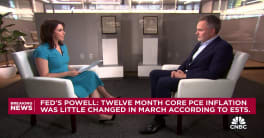The long awaited independent accounting report on Fannie Mae was released late last month, and while it sort of absolves Franklin Raines, former Chairman and CEO of the mega-mortgage company who, along with Timothy Howard the CFO lost his job at the height of the scandal, it comes down pretty hard on Howard. Interestingly, we did not find one mention of the accounting firm of KPMG which was also fired from its position of independent auditor, in the report's Executive Summary.
The report was the result of months of work by an independent commission headed
by former Senator Warren B. Rudman and the firm of Paul, Weiss, Rifkind, Wharton
& Garrison, LLP who were hired in September 2004 to conduct an independent
investigation into, among other things, issues that were raised in an earlier
investigatory report from the Office of Housing Enterprise Oversight (OFHEO).
The OFHEO Report found that Fannie Mae's accounting was not always consistent
with generally accepted accounting principles (GAAP) and was motivated by the
corporation's management's desire to paint Fannie Mae as a "consistent
generator of stable and growing earnings," and by a compensation arrangement
that rewarded management for meeting earnings goals.
The report submitted to the Special Review Committee (SRC) last month is over
2,600 pages long and we admit that we did not read it. We did, however, manager
to slog through most of the 34 page Executive Summary (is there a media equivalent
of a Purple Heart?) and found the following.
The principal investigators determined that Fannie Mae's the accounting irregularities were not tied to any attempts to garner executive bonuses but that historical accounting practices, internal controls, corporate governance, and structure prior to 2005 were flawed as follows:
- Management's accounting practices were generally not consistent with GAAP
and, in many cases management was aware of the deviations. The departures
were often justified because of perceived needs to accommodate system inadequacies,
the unique nature of Fannie Mae's business or "substance over form" arguments.
The report gave as examples the Corporation's attempt to minimize earnings
volatility and to avoid having to make investments in new systems to accommodate
GAAP or impairment write-downs that would have been required under GAAP for
interest-only securities.
- The investigators did not, other than in one instance in 1998, find evidence
supporting the conclusion that management's departure from GAAP were motivated
by a desire to maximize bonuses but did find evidence that certain accounting
practices were employed to demonstrate stable earnings growth, avoid stated
income volatility, and achieve forecasted earnings.
- Employees who occupied critical financial reporting and auditing functions
at Fannie Mae were generally unqualified to fulfill those functions or failed
to carry out their responsibilities. This was particularly true of senior
officials in the Controller's Office and the Office of Auditing, and the resources
devoted to accounting, financial reporting, and audit were insufficient for
the tasks at hand.
- Management provided information to the Board of Directors about accounting,
financial reporting, and audits that was incomplete and even misleading. The
report was particularly critical of the roll of Timothy Howard in this respect.
- Accounting systems were "grossly inadequate." This was most notable in the investigator's review of the Corporations accounting of premiums and discount amortization, but several other operations were also questioned.
In its sixth and final conclusion, the investigators came down hard on Howard, the former CFO, and Leanne Spencer, the former Controller saying that they were primarily responsible for the accounting practices being criticized. As to former Chairman and CEO Franklin D. Raines, the report stated that it did not appear that he knew that accounting practices were out of line with GAAP in significant ways. It did, however, state that Raines contributed to a culture that improperly stressed a stable earnings flow and that, as captain of the ship he had to take responsibility for failures that occurred while he was at the helm.
Fannie Mae's current CEO and President Daniel H. Mudd released a statement saying that the report is "strong but good medicine". He said that he and his officers would work closely with the corporation's board of directors, OFHEO, and the Securities and Exchange Commission to move forward with remedial measures and make progress toward completing the long-awaited restatements of earnings.
"Fannie Mae," he stated, "is a different company than a year ago. We have been humbled, even embarrassed. But we have begun to make significant changes." These include a new management team, reorganized legal and regulatory operations, and recapitalization of the corporation with a 30 percent capital surplus as required by OFHEO. Mudd said that, while engaged in the process of a financial restatement (which must restate earnings reports back to 2001) the corporation is building new systems and processes to ensure full compliance with GAAP.
He acknowledged that many of Fannie Mae's problems were rooted in the corporate culture and said that the organization was striving to build a new culture; "one that emphasizes service to customers, partners, shareholders, and the market; engagement with stakeholders that is open, honest, cooperative; accountability to regulators, Congress, those we service and the public; and management that earns the trust of... those we serve that Fannie Mae is a well-run company."







